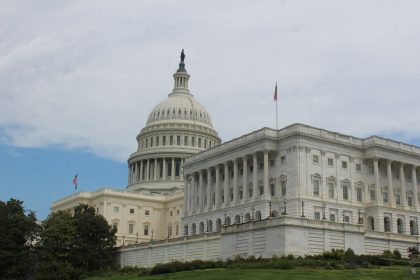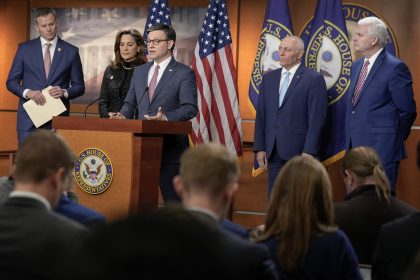House to Strengthen Hoyer’s Hand to Curb Drawn-Out Votes

WASHINGTON – House Democrats are expected to adopt a new rule Tuesday that will temporarily enable Majority Leader Steny Hoyer to speed votes on noncontroversial bills and bypass the partisan maneuvering that has repeatedly drawn out votes this Congress.
In recent weeks, members of the House Freedom Caucus have repeatedly forced recorded votes on bipartisan legislation listed on the suspension calendar, with the results being the chamber took more than 15 hours voting on these bills.
Suspension of the rules is a procedure generally used to quickly pass non-controversial bills in the House. Typically, a motion is made to suspend the rules and pass the bill, and if the motion is agreed to, the bill is considered passed by the House.
On Monday, 18 bills were listed on the suspension calendar of bills, meaning that if the Freedom Caucus again forced recorded votes on each of them, an additional nine hours would be taken up voting.
The irony, according to both Hoyer and House Rules Committee Chairman Jim McGovern, is that once the votes are cast on these bipartisan bills, nearly all Republicans vote for them.
As an example they pointed to a vote Monday night on H. Res. 130, which condemns China’s anti-democracy crackdown in Hong Kong. The Freedom Caucus called for a roll call vote, and the measure passed 418-1.
They also pointed to a vote last week on a bill, H.R. 941, which reauthorized medical research programs. Again, the Freedom Caucus called for a roll call vote on a measure that wound up passing 415-2.
The solution the House Democrats came up with is a temporary rule change that will allow the House to hold one vote on bills on this week’s suspension calendar.
The language of the Rule gives the majority leader or his designee the ability to en bloc requested roll call votes on suspension bills considered on April 19 or 20. This authority lasts through April 22.
Hoyer said the new rule will save the House seven or more hours that can be spent on more productive pursuits — like meeting with constituents or participating in committee hearings or markups — without undermining anyone’s right to express opposition to the bills.
He also said that while the bill considered under a suspension of the rules would be passed as one block, they will go to the Senate individually.
Despite the move, Hoyer said he and other members of the House leadership will continue to reach out to House Republicans and discuss ways for noncontroversial, bipartisan bills to move forward, “in a fashion that will not take the kind of time we’ve been taking over the last two weeks.”
In a series of Tweets on its Twitter page, the Freedom Caucus, which is made up of conservative Republicans, acknowledges it has used “the few procedural tools the minority party has to slow down Speaker Pelosi’s ability to fundamentally remake America without the say of those sent to Washington to represent millions of Americans.”
“We contend that the American people deserve to know how their representatives vote on legislation — the fundamental job of a member of Congress,” the group says. “If Pelosi and Democrats choose to strip us of our right to request votes, it will be yet another example of Democrats … undermining the rights of the minority party to expedite the passage of their partisan, far-Left agenda.”























